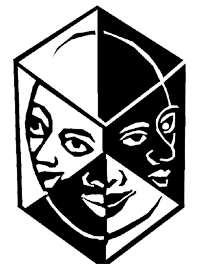Theme
The fifth European Conference on African Studies (ECAS 2013) will take place at the ISCTE-IUL, Lisbon, Portugal, from 27 to 29 June 2013. It will be organized by Centro de Estudos Africanos - Instituto Universitário de Lisboa (Centre for African Studies, Lisbon University Institute (ISCTE-IUL)) on behalf of AEGIS, the Africa-Europe Group for Interdisciplinary Studies. Its general theme will be African dynamics in a multipolar world.
The 2010s have witnessed the consolidation of most African states and institutions. However, fifty years after the foundation of the Organization of African Unity in 1963, the international panorama and Africa’s position in it have changed considerably. The world's geopolitical and economic configuration has evolved, with new actors appearing on an increasingly globalized scene. Under these conditions and given its own trajectory, the current challenges that Africa faces include the promotion of peace and security, human rights, democratic institutions and particularly the integration and socioeconomic development of Africans, as stated by the OUA's successor, the African Union. ECAS 2013 will discuss three aspects of this new configuration and its effects on African societies: political challenges, economic and development changes and social creativity. The conference's main focus will be the contemporary period, while taking into account the historical dimension of these issues.
The new international political configuration has to consider the fall of the old dictatorships in northern Africa, the role played by new political actors and unconventional forms of involvement such as those made possible by information and communication technology. From an economic perspective, the increasing importance of emerging markets such as Brazil, Russia, India, China and South Africa, with their own cooperation agendas, limited resources and growth and far-reaching effects on climate change and food security have a strong impact on African economies and societies and their position in global forums. In social and cultural terms, the dynamism of African societies and their diasporas is evident in the ability of both individuals and groups to combine endogenous and exogenous elements and develop strategies to overcome the all too well-known odds. Such creativity is found in diverse areas such as cultural forums and academic debate and also in migration, trade, information and communication technology, health, social protection, the problems of youth and urbanisation, and the reconfigurations of the socio-political and religious spheres.
It is thus of the greatest importance to look into Africa’s possibilities of becoming a major player in the formation of the emerging overall order. For the academic community to adequately respond to this challenge, it is vital for African scholars to play a key role in the endeavour. The conference will take account of experiences that are appearing in Africa, which question the dominant paradigms in terms of practice and reflection.
ECAS 2013 will be open to scholars from all over the world and the call for panels is open to disciplines and methodological approaches representing the Social Sciences and Humanities. The organizers strongly encourage panels including researchers from different universities and institutions. Panels are entirely free to choose their subjects but are especially welcome if their subjects are related to the general theme of the conference. As a rule, panels are expected to consist of four papers, with a chair and a discussant. Larger panels may be accommodated over more than one session. The conference language is English, though papers in other languages are possible on the condition that the panel organizers provide for interpreting facilities.

 Site
by NomadIT
Site
by NomadIT